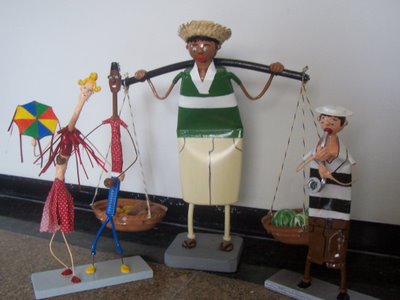It's a little known fact...
The other day, I found myself wondering why the English language had no term to distinguish the second person plural from the second person singular.¹ It's all about you, which is why, of course, the alternatives of y'all, yous, youse and you guys had to be invented, otherwise how could one easy differentiate a greeting to all versus a greeting to one in particular. To understand why a situation such as this could be allowed to exist, I went to the Source of All Knowledge² and did a little investigating. And ... as it turns out, you actually is plural. It's the singular that we are missing.
Back in Old English, there existed the second person singular - thou - and the second person plural - ye/you.³ The accusative versions being thee and you, respectively. At a time when English was being highly influenced by other languages, a change was made to allow for a second person singular formal - thou being informal - as existed in most other languages. Continuing to follow its neighbouring languages, the English language started using the second person plural - you - as the second person singluar formal, pretty much along the same lines as tu-vous-vous, tu-usted-ustedes, tu-você-vocês, du-Sie-sie, etc.
Overtime though, the use of the informal died out as people insisted on being shown a little respect, thank you very much. And we were left with you and you, second person singular - formerly singular and formal - and second person plural. Of course, these days, when the words thou-thee-thy are used, we always assume that they are more formal than you-you-your, but in fact they show even more familiarity than do the roots of you.
So instead of trying to find ways of pluralising you when addressing more than one person - since we would be pluralising an already plural word - we should actually be starting a movement to bring back the second person singular informal. Are ye with me?
¹ It's been a little slow in the Funny Stories from Brazil category.
² Previously known as your local public library, now known as Google.
³ Not to add more confusion, but somewhere along the way ye - the original nominative second person plural - got replaced with you - the original accusative second person plural, making the nominative and accusative the same in both the singular and the plural. Ha!










